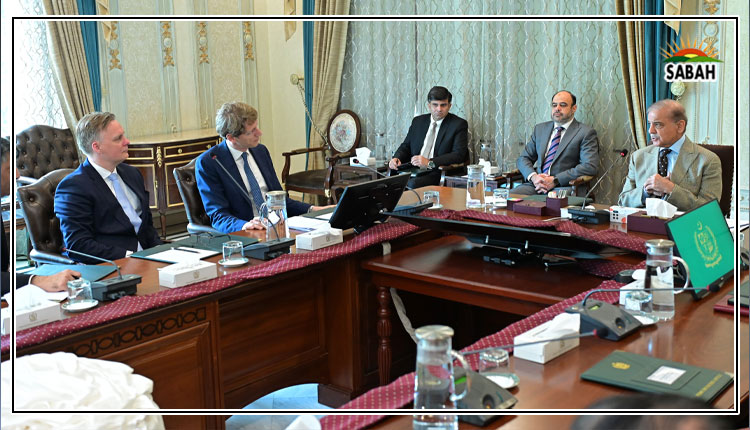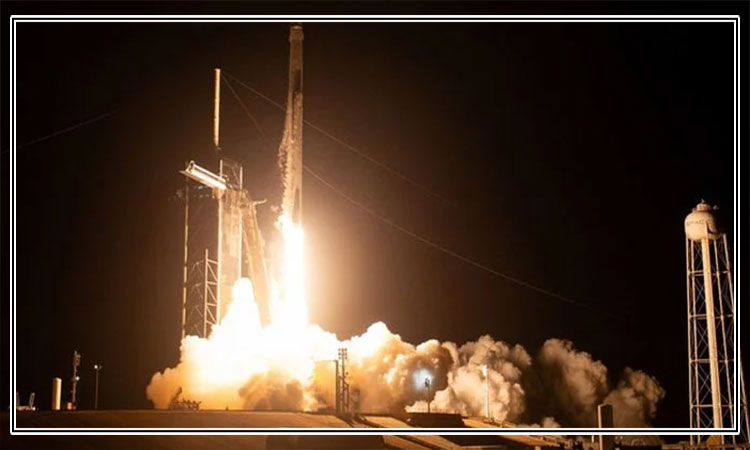The new frontier ….. Zahra Niazi
The global space sector has made significant strides in recent years as increased private sector investment, advances in technology, and an ever-increasing demand for space-enabled services are helping unlock the potential across the space ecosystem.
In nearly six years, for instance, the global satellite sector, enabling positioning and navigation, geospatial intelligence, and communications, has grown impressively, with the number of satellites operating in various Earth orbits increasing from around 5,000 at the beginning of 2019 to over 10,000 today.
These space-enabled services are set to play a much larger role as the world becomes more interconnected, mobile, and informed, generating higher demand for satellite internet, positioning and navigation services, and insights powered by machine learning (ML) and artificial intelligence (AI), requiring data infrastructure provided by satellites.
By 2035, the space economy is expected to be worth $1.8 trillion compared to $630 billion in 2023, encompassing ‘all activities and resources that contribute to human progress through the exploration, research, understanding, management, and utilisation of space.’
Space startups represent a frontier brimming with potential for long-term value and growth. To many, the term ‘space startups’ may, at first glance, give an impression of grand ventures such as providing rocket launch services or building, launching, and operating satellites in space to generate data, but their role extends far beyond that. Once data is generated from space-based assets, it has to be received, processed, stored, and distributed, then used to deliver products and services to customers.
As a case in point, companies such as MAXAR launch satellites that generate geospatial data (data about specific locations on the Earth), while SkyWatch provides distribution services by offering stakeholders, including application developers, easy and fast access to that data. Companies such as Regrow Ag then leverage those space-based datasets to track crop health and support agronomists in making more informed decisions.
All three companies, which started as startups, contribute to the space economy by enabling geospatial intelligence services in one way or another, demonstrating the abundance of opportunities within the space industry. In the times ahead, many other commercial space activities are likely to expand, such as space manufacturing and tourism, space station provisioning, debris mitigation, and space traffic management, among others.
Pakistan’s aerospace startup ecosystem has also evolved over the recent period, signifying the efforts towards nurturing entrepreneurship in this promising domain. Notably, driving the expansion of this ecosystem is a project of the Ministry of Information Technology & Telecom (MoITT) and Ignite – the National Incubation Center for Aerospace Technologies (NICAT).
Positioned within the National Aerospace Science and Technology Park (NASTP) inaugurated in 2022, NICAT offers the requisite elements to boost entrepreneurship in IT, space, aviation, and cyber domains by providing young talent with access to mentorship, research and development (R&D) facilities, networking opportunities, investors and funding, manufacturing partners, and office space.
Moreover, carrying forward its legacy, the Institute of Space Technology, established under the auspices of Pakistan’s Space & Upper Atmosphere Research Commission (SUPARCO), has been supporting the space startup ecosystem. Its Business Incubation Centre, for instance, has been providing aspiring entrepreneurs with opportunities to launch startups focused on aerospace and technology.
However, while these developments are commendable, the frontier of space startups in Pakistan still has much room to develop and grow. Stakeholders suggest one notable obstacle is that space-based ambitions have not attracted the required traction among young professionals and entrepreneurs, including forward-thinkers.
Addressing this necessitates a holistic approach, from enhancing space popularisation through outreach programmes to integrating space studies with other popular majors, such as computer science, data science, or AI. Entrepreneurial efforts often lack detailed background planning and preparation – prerequisites to a successful venture. On the other hand, while efforts have been undertaken to augment funding opportunities for startups, gaps in financing still exist, undermining the development and growth of some early-stage ventures.
International experiences have shown that governments have been the most valuable source of early-stage funding for capable entrepreneurs pursuing space-based ambitions. However, ‘astropreneurship’, as they call it, just like entrepreneurship in any other industry, has only flourished when preceded by detailed background preparation, including identifying market opportunities, trends, and potential customer segments.
Today, many areas within the space economy are demanding innovation, including, but not limited to, next-generation earth observation (EO) applications, 3D data and development tools, or weather micro-forecasting, which are worth exploration in Pakistan.
The world is in the middle of an entrepreneurial space age – one increasingly driven by the efforts of forward-thinking visionaries. Catalysing the development of space startups will be imperative if Pakistan is to carve out a space for itself within the global space economy and reap its benefits.
The writer is a research assistant at the Centre for Aerospace & Security Studies (CASS), Islamabad, Pakistan. She can be reached at: cass.thinkers@casstt.com
Courtesy The News












